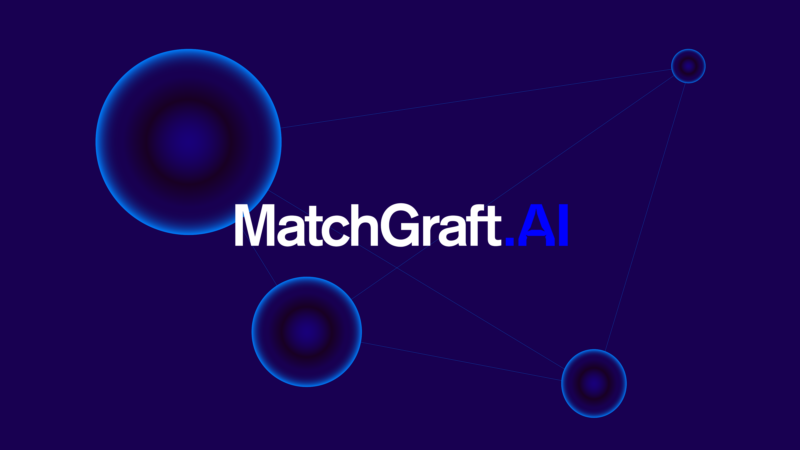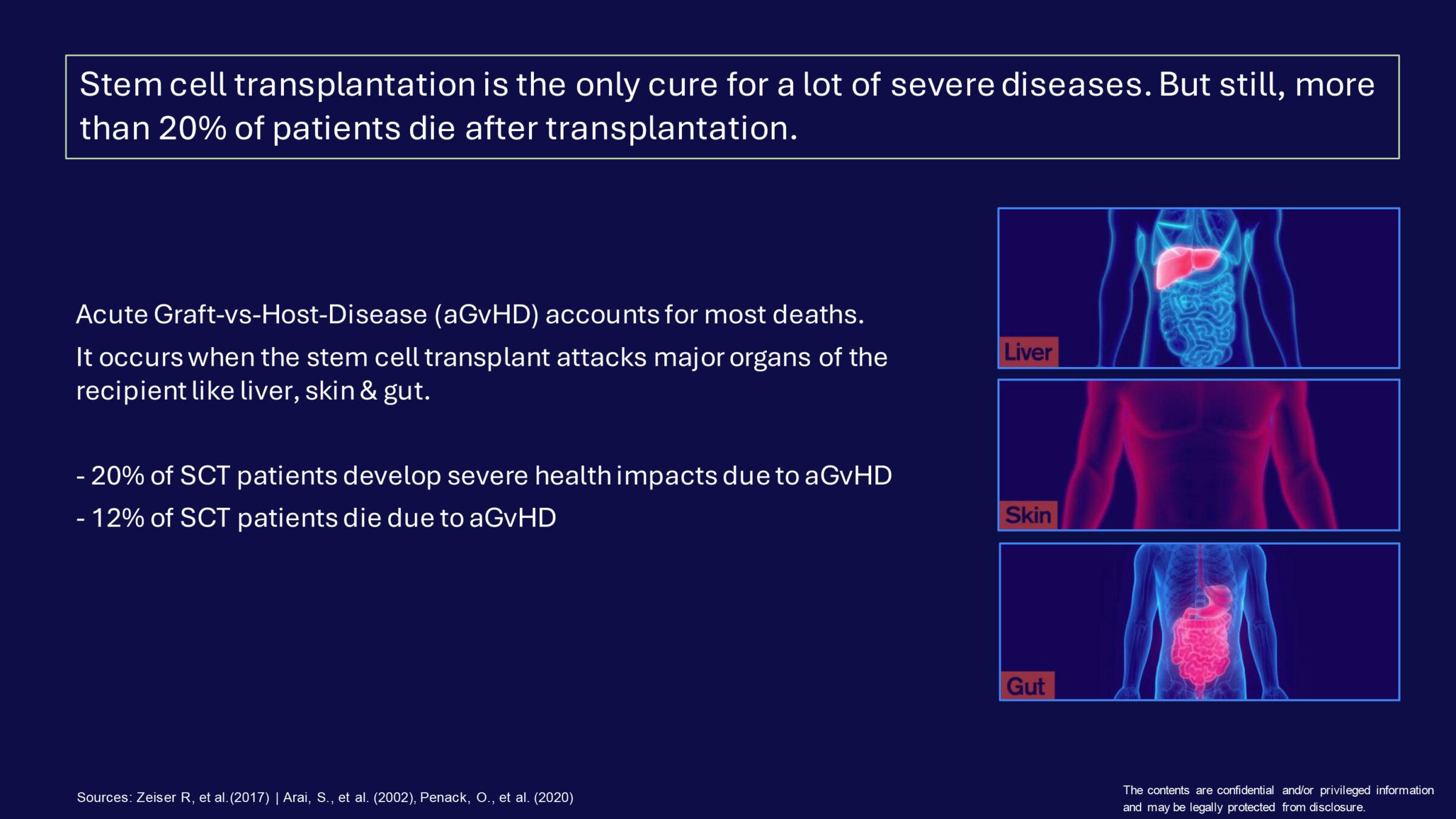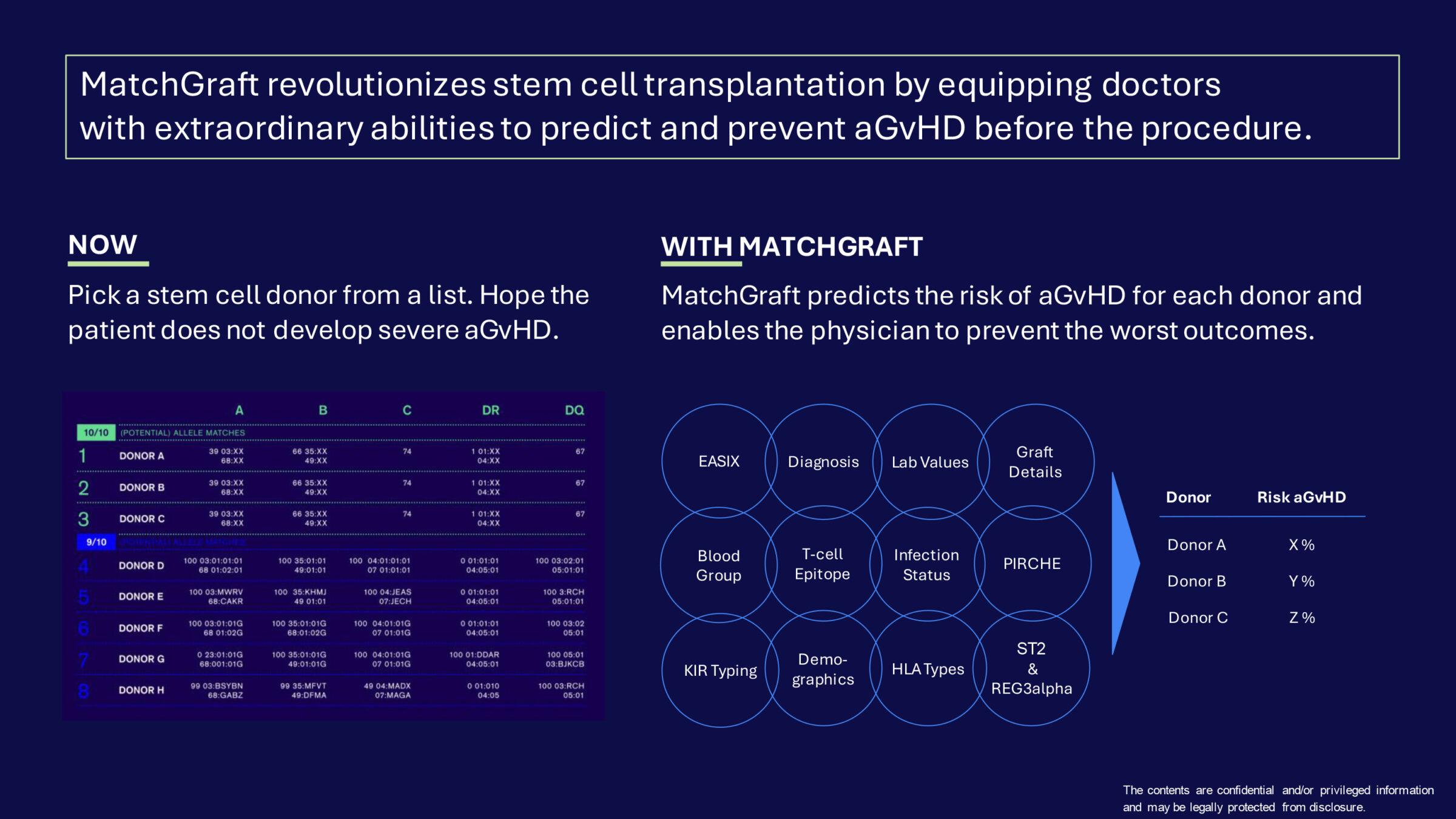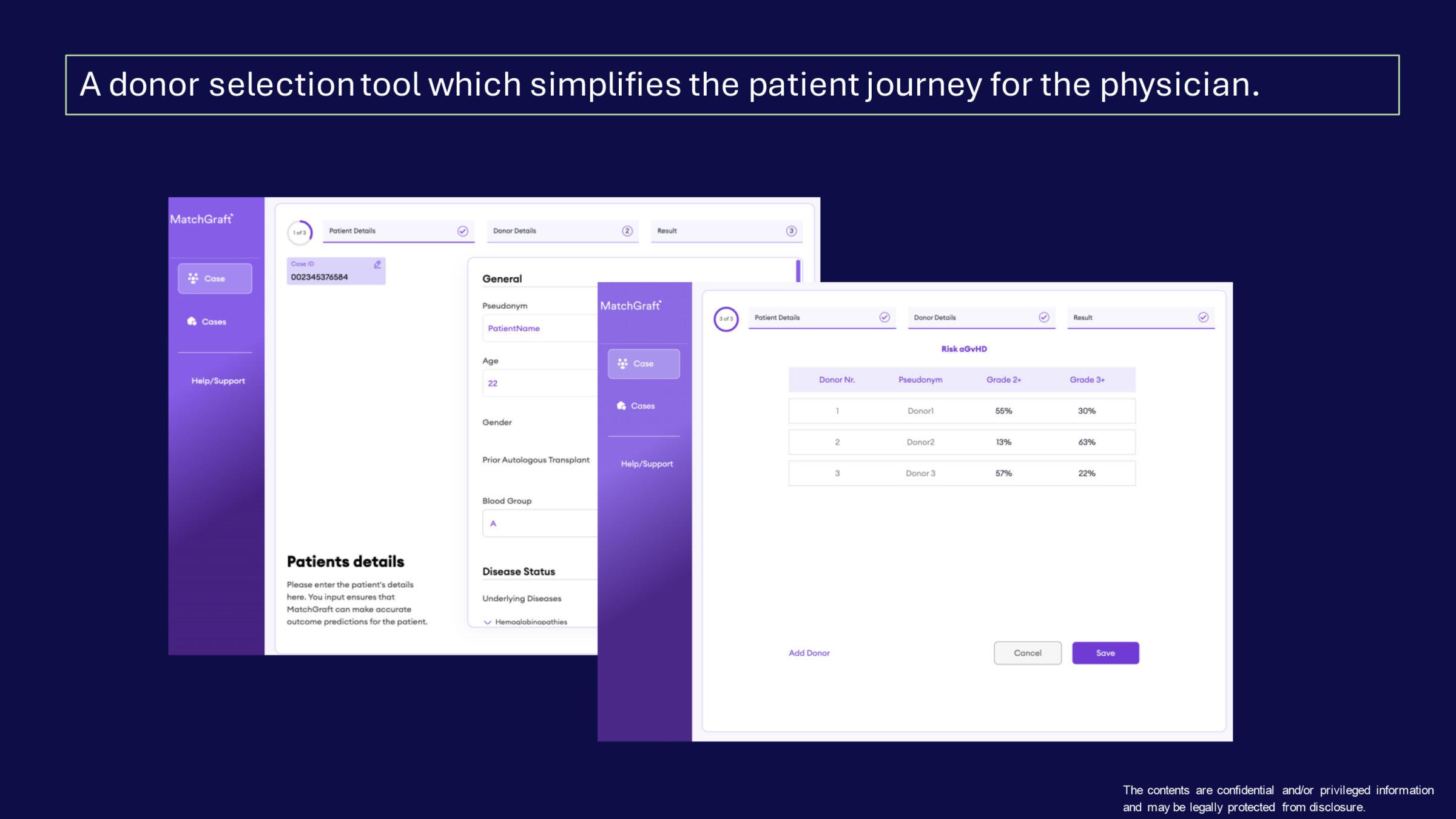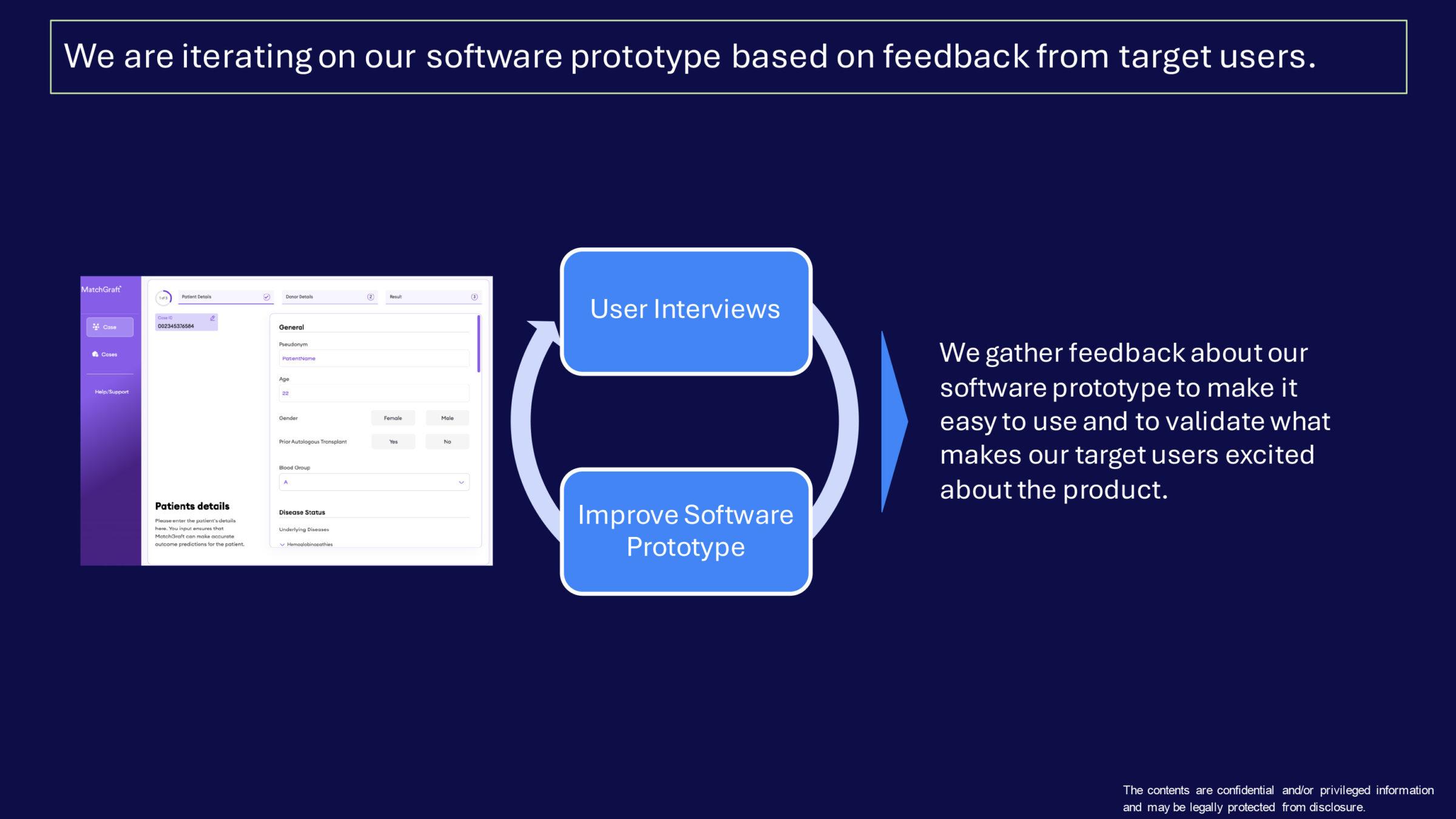Donor-Patient Matching Tool for Stem Cell Transplantations and Beyond
Alumni
Project WebsiteStem cell transplantation (SCT) remains the only curative treatment option for many hematologic diseases in children and adults. The number of performed SCTs has almost doubled in the last ten years with 3,600 SCTs in Germany and 20,000 SCTs in Europe per year. Despite major improvements over the last decades, donor-patient matching is still slow and insufficient.
SCT holds severe, possibly life-threatening complications such as Graft-versus-Host Disease (GvHD), relapse of malignant disease, rejection, and infections. In GvHD, transplanted immune cells recognize the recipient’s organs as foreign and attack them.
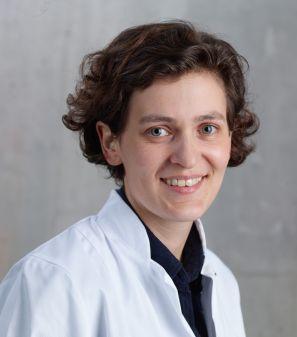
Lena Oevermann
(Charité)
Project Lead

Jonathan Groß
(Charité)
Project Lead
Due to insufficient donor-patient matching as well as unsatisfactory first-line treatment and a lack in the standard of care for a second-line GvHD treatment, up to 50 % of the patients undergoing SCT will develop GvHD resulting in high morbidity, mortality (up to 90 % for severe GvHD) and treatment costs after SCT.
MatchGraft.AI revolutionizes donor matching by building and applying an AI-based tool.
MatchGraft.AI’s first use case is the prediction of the development of a GvHD after matching to decrease the rate and severity of the disease by optimizing GvHD prophylaxis and facilitating earlier treatment. Based on a SCT Biobank cohort, first, we have built a machine learning-based algorithm with a predictive performance comparable to the literature, showing the feasibility of this approach. Our tool will be the first in clinical use to combine risk factors and algorithms in a novel way.
We are already working together with the central German matching service ZKRD and Charité HLA lab in Berlin and will receive further data from transplant centers in Germany, EU and the Fred Hutchinson Cancer Research Center as one of the Top 5 transplant centers in the US.
Further close collaborations with hospitals and transplant labs are essential especially for multiethnical datasets. Our goals are to find better matches faster, improve clinical decision-making and reduce mortality for children and adults. Our tool will increase the quality of life of SCT survivors and decrease the health care burden of SCT complications such as GvHD.
Our vision is to improve the health of all transplant patients globally by making transplants safer, faster, and more effective. MatchGraft.AI is built by an experienced team in clinical hematology, oncology, and stem cell transplantation, supported by a senior machine learning expert, and scientific advisors in industry and clinics.

